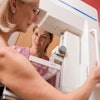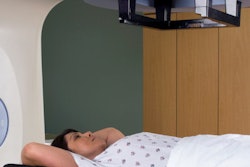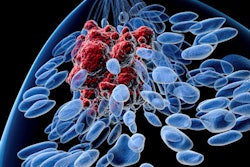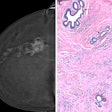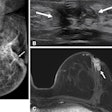
A type of mastectomy that leaves the surface of the breast intact is a safe option for more women, including those who have breast cancer that has spread to the lymph nodes or who are at risk for surgical complications, according to research presented May 2 at the American Society of Breast Surgeons (ASBrS) meeting in Dallas.
A team led by breast surgeon Dr. Tina Hieken of the Mayo Clinic in Rochester, MN, found that the procedure, called nipple-sparing mastectomy, allows surgeons to remove diseased breast tissue but leave the skin, nipple, and areola -- and to begin immediately rebuilding the breasts. It has become more popular over the past decade for both risk reduction and cancer treatment, said contributing author Dr. Judy Boughey, also of Mayo Clinic, in a press conference held May 2.
"The goal of this approach is to provide the very best possible cosmetic outcomes without sacrificing outcomes related to cancer treatment or cancer prevention," Boughey said.
Hieken and colleagues assessed outcomes in 769 women who underwent nipple-sparing mastectomy between 2009 and 2017. The surgery was performed on 1,301 breasts during the study period. Outcome measures included 30-day complications requiring treatment, such as infection, hematoma, flap necrosis, or unplanned reoperation. Researchers also assessed reconstruction success one year later.
Thirty-day complications from nipple-sparing mastectomy declined over the study timeframe, from 14.8% in 2009 to 6.3% in 2017 -- despite the fact that the procedure was offered to more women, including those who had locally advanced cancer or surgical complication risks such as obesity or prior surgery, the researchers found. For all years, the surgery was considered a success at the one-year mark in approximately 97% of cases, according to Hieken's group.
There were some caveats, however: The researchers found that patients who were current smokers or who had radiation therapy before surgery had more surgical complications than those who were not smokers or had not had radiation. In fact, women who had radiation either before or after surgery had a higher incidence of breast reconstruction failure, the group noted.
Overall, nipple-sparing mastectomy is a viable option for women with breast cancer, Hieken said in a statement released by Mayo Clinic.
"Offering enhanced aesthetics as a result of these surgeries to women who have had a devastating diagnosis is extremely rewarding," Hieken said. "Today, breast cancer patients who are not offered nipple-sparing procedures should ask their surgeons why. As this study shows, these surgeries are proving safe for a broad patient base."




